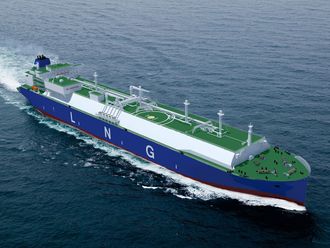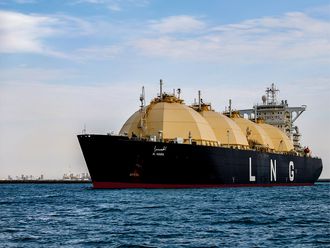London: British oil and gas tax revenues could rise by billions of pounds this year as high oil prices boost earnings and tempt operators into opening new fields after a decade of sharp declines, industry data and Reuters research showed on Thursday.
The past two years of investment have set the stage for a landmark shift in the North Sea, following exceptionally dismal data in 2011 when oil and gas production in the third quarter slumped at the fastest rate since records began in the mid-1990s, research by consultancy Wood Mackenzie suggested.
Oil and gas investment in Britain is set to hit an all-time high this year, adding new jobs and potentially more than £5 billion (Dh28 billion) in tax revenue to Britain's strained budget and labour market.
British oil and gas production has fallen at an annual average of 4.13 per cent and 6.16 per cent, respectively, since 2005, according to government figures.
A halt in falling output alone would give the Treasury almost £2 billion more in gross production revenues in 2012 than it did in 2010, Reuters research showed. Calculations were based on 2010 oil and gas prices and an industry average tax rate of 68 per cent.
But higher oil and gas prices this year could lift tax revenues by £5.5 billion compared with 2010, the latest year for which data is available, although that is before companies deduct capital and operating costs and some other rebates.
"As of 2012 we expect production declines to halt for liquids (including crude oil) and gas, and we expect that to continue for a few years until the decline starts again," Lindsay Wexelstein, an analyst at energy consultancy Wood Mac, told Reuters.
Wexelstein predicted a slight increase in gas production but said oil output would most probably remain stable.
Wood Mac also said that Norwegian oil and gas exploration is set to increase in 2012. Norway expects to publish its offshore oil and gas outlook on Monday.
Britain's crude oil production amounted to around 58 million tonnes in 2010, according to government data, and BP figures showed the average price for Brent crude in 2010 was $80.33 per barrel.
This puts the total value of UK oil output at over £22 billion. At current Brent futures prices for 2012 of almost $100 a barrel, the same production would be worth over £27.5 billion.
Government data showed that UK gas production was 54.53 billion cubic metres (bcm) in 2010, and the average spot price for gas was 42.45 pence per therm, according to Reuters data.
This put Britain's market value of gas production at £8.56 billion. At the same production levels and current gas prices of over 56 pence per therm, the value rises to £11.45 billion.
Analysts said the main downside risk for government revenues is that a renewed recession could pull down energy prices.
They also said the halt in declining North Sea production would only be for a few years.
North Sea oil and gas output passed its peak at the start of the last decade as the larger and easier-to-tap deposits were pumped out. That peak remains out of reach to this day, Wexelstein said.
With oil prices rebounding to over $100 a barrel, energy explorers ramped up investment in development programmes from 2010 after years of low prices that had put new projects on ice.












